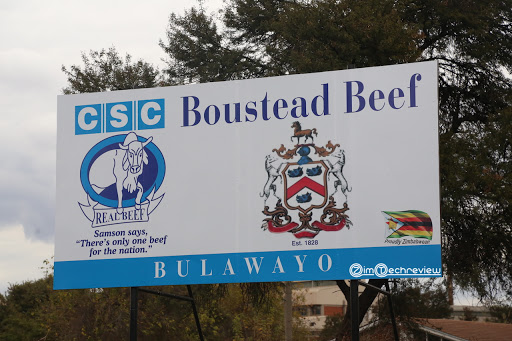Engineers step up CSC Boustead Beef Byo rehab
MEAT processor, CSC Boustead Beef Zimbabwe, says its engineers would work throughout the forthcoming Christmas holiday to expedite the on-going rehabilitation of the Bulawayo factory after missing the planned re-commissioning of the plant this quarter due to logistical constraints linked to the outbreak of the Covid-19 pandemic.
Boustead Beef (Pvt) Ltd, the United Kingdom investor, took over the defunct Cold Storage Company in 2019 under a recapitalisation deal with the Government and has committed to injecting a minimum of US$130 million.
Its main mandate is to revive the strategic company’s operations across the country by refurbishing industrial assets such as ranches, feedlots and residential properties.
Despite stakeholder criticism over delays in resuscitating the factory, the investor says significant progress has been made and insists the rehabilitation exercise would restore the firm to its previous full capacity.
CSC-Boustead Beef consultant, Mr Reginald Shoko, told Business Chronicle that logistical bottlenecks occasioned by the Covid-19 pandemic had frustrated smooth procurement and shipping of critical components needed to repair the giant factory.
“We have been rehabilitating the entire plant to return it to its installed production capacity. We have done the compressors, which power the entire cold chain system and we are also working on the ammonia system and pumps.
We are also re-opening the by-products section, which is also under rehabilitation. The engineers are busy on all sections of the plant,” he said.
Mr Shoko said they were waiting for the delivery of the condenser, which is in transit from China.
“There have been delays due to logistics challenges arising from the Covid-19 pandemic.
Some parts are coming from South Africa and these are not a big challenge as they come in batches,” he said.
Mr Shoko said as part of re-commissioning preparatory process, the National Social Security Authority (NSSA) recently visited the factory and inspected the boilers.
“This is a critical process in line with the country’s regulations for ensuring health and safety standards are met,” he said.
Mr Shoko said the company is heading for home stretch in terms of plant recommissioning and re-opening the Bulawayo factory once the outstanding parts are delivered and installed.
He said trial runs were expected to commence upon installation but reiterated that challenges linked to logistics of movement across the borders were still being felt despite the fact that most parts in transit from various sources have been fully paid for.
“We had focused opening Bulawayo plant this quarter but shipping logistics have let us down. We’ll be working throughout Christmas to catch up on the delays and a dedicated team of engineers are already on the ground,” said Mr Shoko.
He said the re-commissioned Bulawayo plant will be exactly as it was when it was first commissioned in terms of capacity and standards.
It will have small abattoirs for goats and sheep.
CSC-Boustead Beef corporate rescue officer, who is a prominent Bulawayo lawyer, Mr Vonani Majoko, expressed confidence that the state-owned entity could be transformed within a short space of time should all pending hurdles be addressed.
“CSC can be turned around very quickly as it still has several advantages over its competitors.
“It still has unique facilities both in terms of the design, capacity and geographical spread compared to its competitors,” he said.
Mr Majoko said CSC has the capacity to export regionally and internationally because it used to export to these markets.
“As we speak there is appetite for a revived CSC to service new and bigger markets like DRC, Angola and Libya. We need to play along more on areas where we have comparative advantage and one of these is the cold chain side, which is not about meat but anything that requires bulk refrigeration. CSC should be able to tap into this and service other industries,” he said.
CSC has been struggling to sustain operations over the past years and faced the risk of liquidation as creditors demanded their dues, which ran into millions of United States dollars. In the face of mounting debts and accusations of poor management among other factors, it slipped into insolvency amid escalating risk profile, which made it difficult to
attract fresh investment.
The company is under corporate rescue model approved by the High Court in 2020 as the Government sought to avert its liquidation. This involves temporary moratorium (relief) on the rights of claimants or creditors against the company or in respect of property in its possession.-The Chronicle









